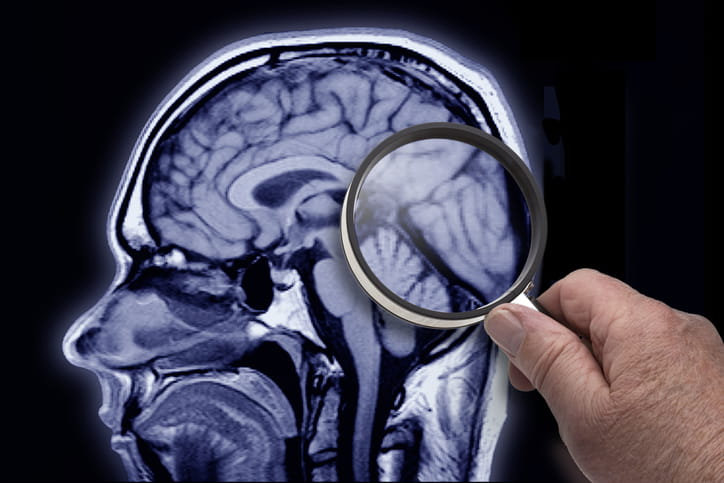Confirming a diagnosis of dementia and identifying the cause and type can be challenging.
That’s because symptoms can often mimic those of other diseases, and they vary for each individual. Also, a doctor must be able to recognize how much brain function has been lost compared with what a person is still able to do.
Fortunately, the experts at the Memory Disorders Clinic at The Ohio State University Wexner Medical Center have been at the forefront of diagnosing dementia for decades. With advancements made here in Columbus, we help health care providers across the globe identify the condition in their own practices.
We developed the Self-Administered Gerocognitive Exam, also known as the SAGE test, to detect the early signs of cognitive, memory or thinking impairments.
It’s a pen-and-paper test that takes 15 minutes to complete. Though it’s best to take the test at your doctor’s office, it can be taken anywhere and then submitted to your health care provider for scoring.
While the SAGE test does not diagnose any specific condition, it’s often the first line of testing offered by physicians if you’re experiencing troublesome memory or cognitive symptoms. The results help your doctor know if further evaluation is necessary.
Stages of dementia
Dementia affects everyone differently, so no two people experience the same warning signs and symptoms.
However, dementia typically appears in stages. It’s important to recognize how the condition progresses to seek help before symptoms become problematic to see if treatment might be beneficial or put caregiver plans in place.
The stages of dementia are:
- Stage 1: no memory deficit
- Stage 2: slight cognitive decline
- Stage 3: mild cognitive impairment
- Stage 4: moderate cognitive decline
- Stage 5: moderate dementia
- Stage 6: severe cognitive decline
- Stage 7: severe dementia
Dementia has both cognitive and behavioral changes. It can affect everything from memory, reasoning, language, mood, coordination and behavior.
Cognitive dementia symptoms
Cognitive symptoms usually appear first and then, will progressively get worse over time.
In the beginning, you might notice these changes, like you keep repeating a question or you get lost driving home, but as the disease progresses, it might be people around you noticing the changes more frequently.
Call us if you’re experiencing any of these symptoms:
- Memory loss
- Difficulty speaking
- Lack of spatial awareness
- Inability to reason or problem solve
- Struggling to plan or organize
- Difficulty with motor functions
- Confusion or disorientation
Behavioral symptoms
Most of us associate dementia with memory loss or confusion, but there are a number of behavioral symptoms that occur as dementia progresses. Slight changes in personality, such as no longer liking a certain hobby, might appear first.
Call us if you’re experiencing any of these symptoms:
- Changes in personality
- Depression or anxiety
- Lude behavior
- Paranoia
- Becoming agitated easily
- Hallucinations or false beliefs
Can dementia be prevented?
Dementia can’t be entirely prevented, but you can take steps that might lessen your chance of getting the condition as well as its effect on you if you do develop dementia.
While more research is needed on the effectiveness of taking such steps, here are some things that might be worth trying:
- Remain socially and physically active – social interaction and exercise might help ward off dementia symptoms
- Keep your mind sharp – you can do this through puzzles, word or memory games, learning new skills or reading
- Manage health conditions – this is especially important for cardiovascular diseases, mental health conditions and hearing problems
- Eat a healthy diet – not only will this help with cardiovascular risk factors, it will also ensure you’re getting the proper vitamins and make you feel better
- Maintain a good sleep schedule – make sure you consult a doctor if you snore loudly or have concerns about sleep apnea
- Quit smoking
Diagnosing dementia
 If SAGE test results identify issues, we can conduct a number of other assessments to determine if in fact you have dementia and what might be causing it.
If SAGE test results identify issues, we can conduct a number of other assessments to determine if in fact you have dementia and what might be causing it.
No single test can confirm the diagnosis, so we’ll use various tools to help us. These include:
- A physical examination and complete medical history
- Interviews with family members
- A neuropsychological assessment – measures cognitive abilities including memory, language, visual perception and other brain functions
- A neuropsychiatric examination – a mental health professional can help determine if the symptoms are being caused by depression or other psychiatric issues
- Blood and other laboratory tests – blood tests can determine if physical problems, like a vitamin B12 deficiency or underactive thyroid gland, are causing dementia. Spinal fluid can also be looked at for signs of infection or inflammation
- Imagining studies of the brain – these detailed images can help rule out other conditions, like a stroke, with similar symptoms. These types of imaging tools are used: magnetic resonance imaging (MRI); computed tomography (CT); positron emission tomography (PET) scan
Sometimes medications prescribed for other conditions contribute to dementia. Our physicians are skilled at identifying these drugs and finding alternate treatments that don’t cause memory impairment.
